On August 22, 2019, the “School of Public Policy & Management (SPPM), Tsinghua University High-end Lecture 2: Global Governance and China's Diplomacy” was held in the Lecture Hall of Tsinghua University SPPM. Prof. Wu Hongbo, Co-Director of the Institute of Sustainable Development Goals of Tsinghua Uniersity (TUSDG) and former Under-Secretary-General of the United Nations, attended and delivered a keynote speech. The lecture was hosted by Professor Poon Kit of SPPM, with the participation of more than 100 teachers and students from the SPPM.
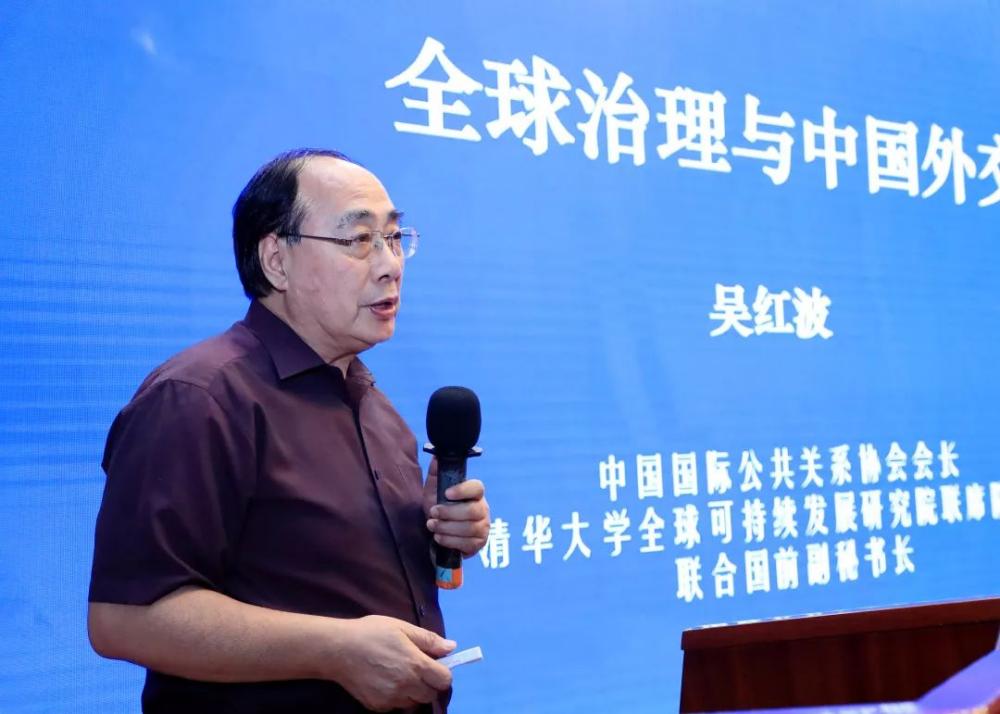
Speech by Prof. Wu Hongbo
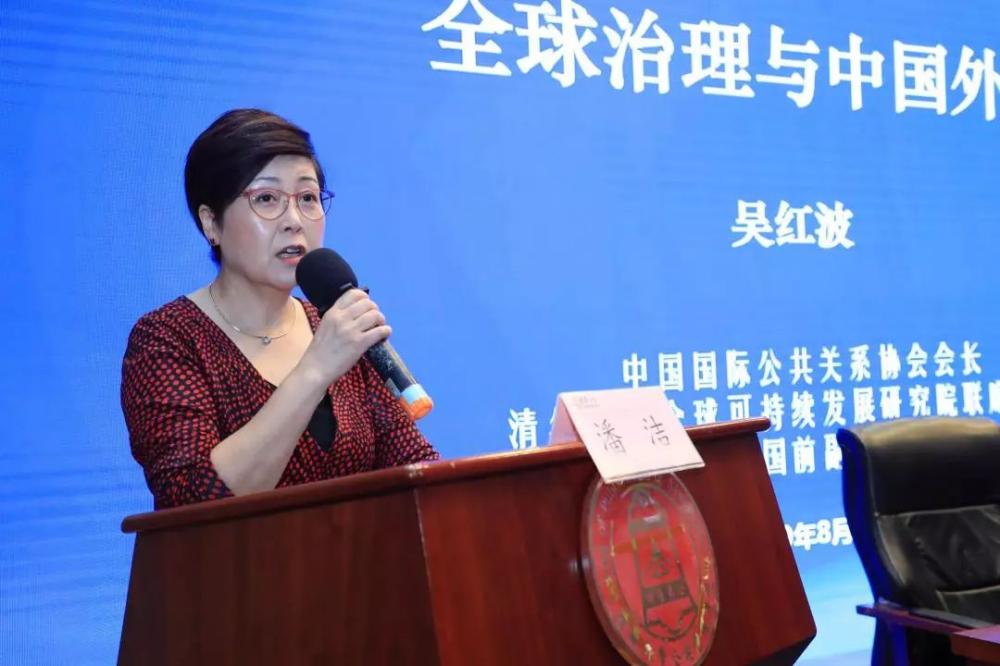
Moderated by Poon Kit
Wu Hongbo firstly analyzed the current global governance mechanism centered on the United Nations, the global financial governance mechanism centered on the World Bank and the IMF, the global trade mechanism centered on the World Trade Organization, and briefly introduced the functions and roles of the United Nations system and its major institutions. In his view, China has been a beneficiary and defender of the post-war international order, a firm promoter of multilateralism and an active participant in multilateral organizations. At the same time, China was an active participant in intergovernmental organizations and had acceded to more than 400 multilateral treaties. China is playing an increasingly important role in international affairs by actively advocating the building of a better world, safeguarding world peace and justice, actively promoting South-South cooperation, advancing global sustainable development, and guiding global development with Chinese ideas and initiatives.
However, with the withdrawal of the United States from the Paris Climate Change Agreement and the UNESCO, the global governance mechanism has suffered; the foundation of the Western democratic system has gradually been weakened, and political extremism and populism have risen; China has gradually become the world's second-largest economy, while other emerging and developing countries are developing rapidly; and at the same time, the global implementation of the United Nations Sustainable Development Goals (SDGs) and the challenges and opportunities brought about by the development of high-technology have led to an unprecedented change in China and the world.
In the midst of such a great change, the relationship between China and the U.S. has also undergone significant changes. Especially in recent years, the U.S. government's attitude toward China has changed significantly, and the role of ballast in the U.S.-China economic and trade relations has disappeared. The major shift in the U.S. attitude toward China is a full-scale rebound of the U.S. against China's rapid development, a battle of ideologies, a battle of systems, and a battle of paths, and is by no means only about the trade deficit.
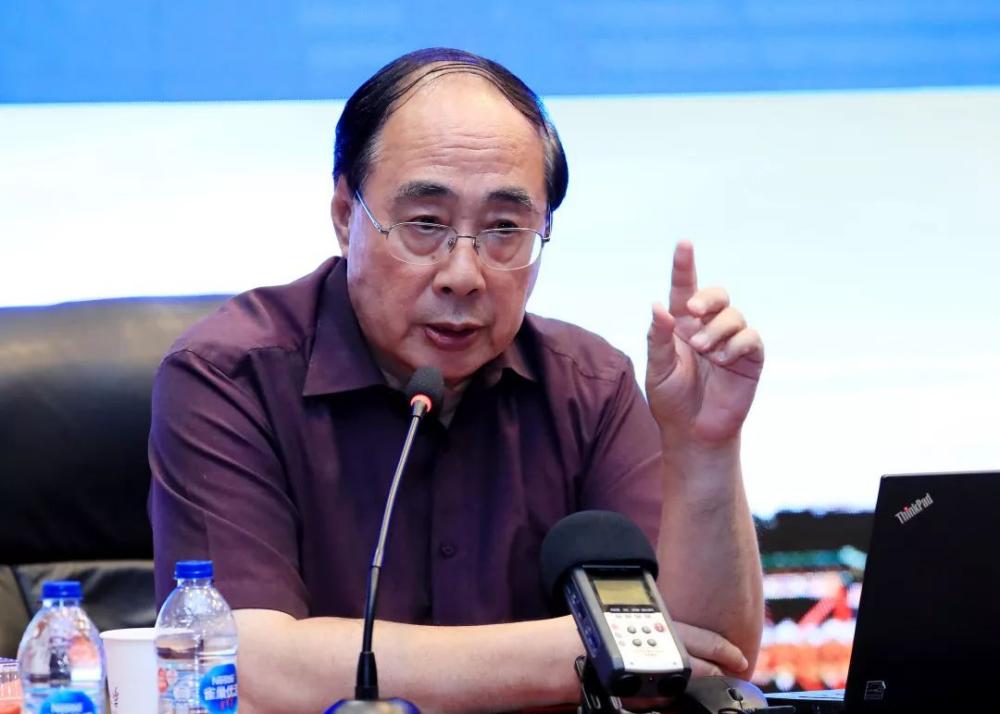
Q & A Session
During the Q&A session, Wu Hongbo shared his views and exchanged ideas with the students and faculty on various issues such as the current Sino-US relationship, the challenges and opportunities of the Belt and Road Initiative and Chinese enterprises going abroad, the relationship between the United Nations 2030 Agenda for Sustainable Development and the Belt and Road Initiative, human rights and freedom of expression, the future development trend of Hong Kong, and the cultivation and export of international talents, etc., and received unanimous appreciation and applause. He shared his views and interacted with the students and teachers on various issues, such as the development trend of Hong Kong and the cultivation and export of international talents, and was unanimously appreciated and applauded by the students and teachers.
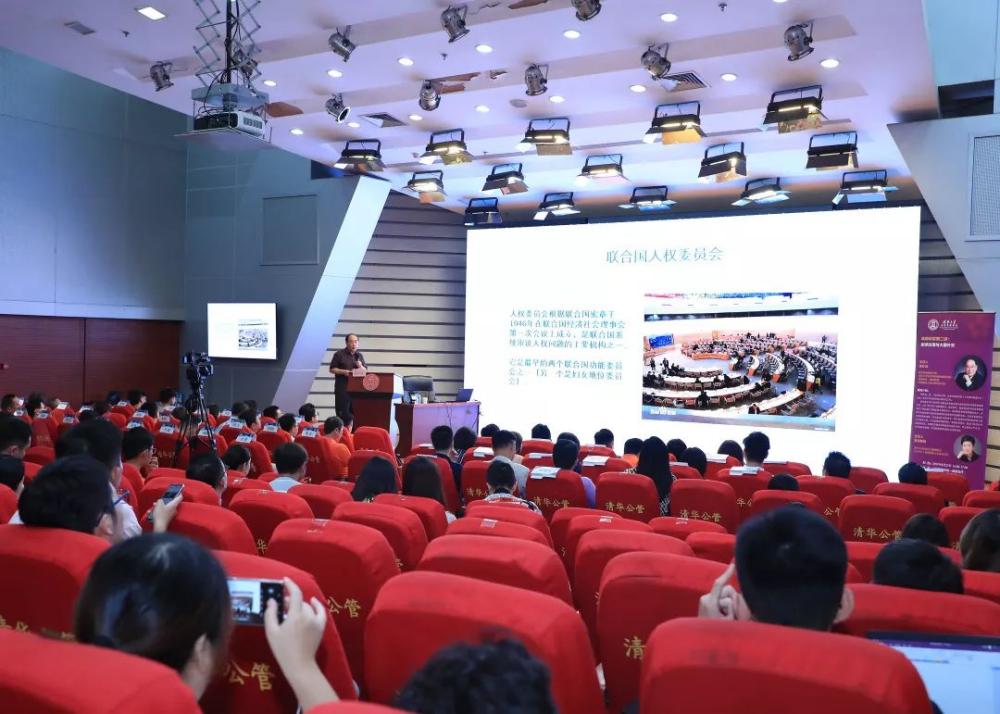
The scene of the meeting
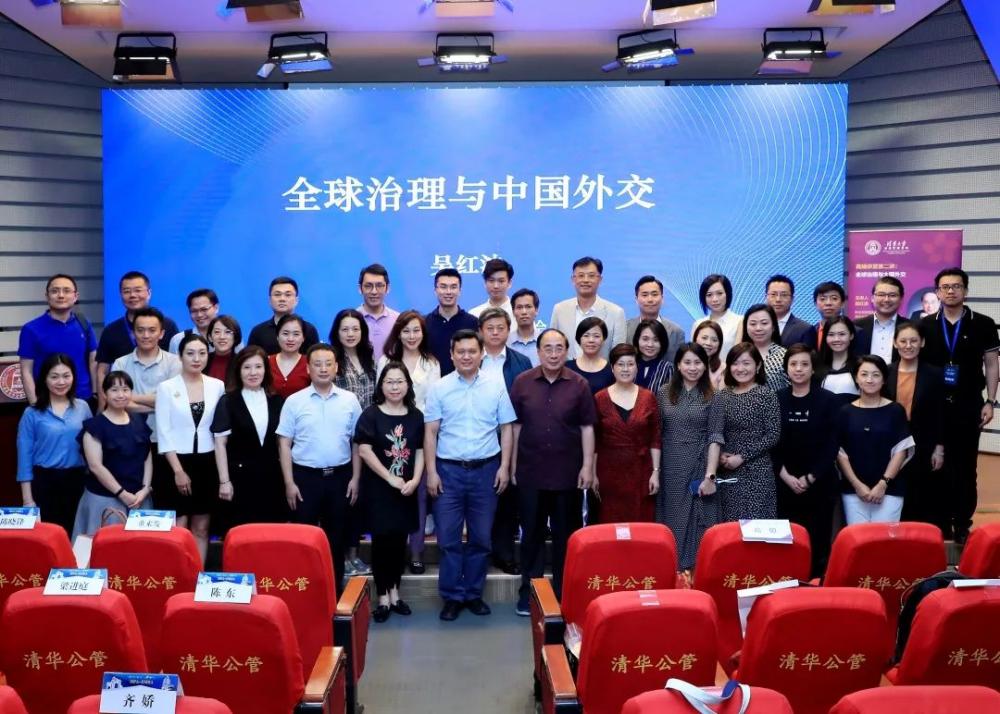
Wu Hongbo with teachers and students at the scene

